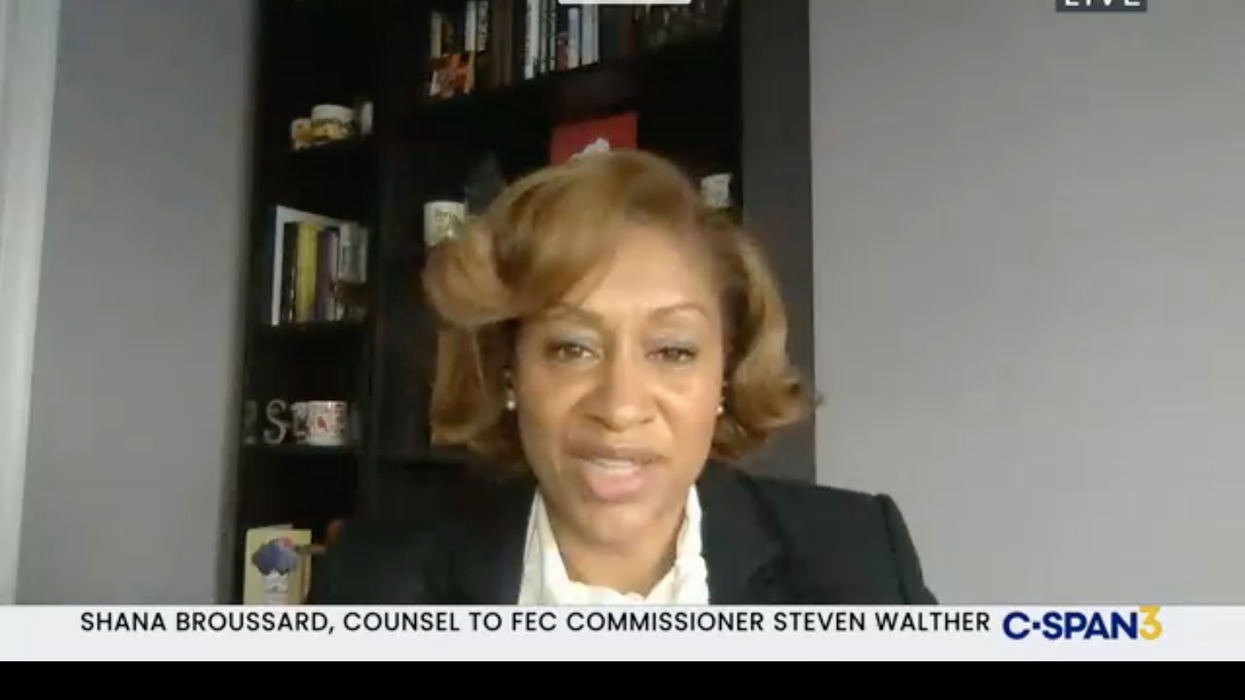The already minimalist regulation of federal campaign money can resume, after it was suspended for almost the entirety of the 2020 campaign, because three new members of the Federal Election Commission were confirmed Wednesday.
The Senate voted 92-4 to make Shana Broussard, a veteran FEC attorney, the first Black commissioner since the agency was created almost half a century ago. A Democrat, she was tapped because federal law requires the commission to have partisan balance. The results fell along party lines for the Republicans put forward by President Trump: 49-47 for conservative think tank attorney Allen Dickerson and 50-46 for senior Senate aide Sean Cooksey.
The confirmations will allow the FEC to get back to work just in time for the start of the 2022 midterm campaign — but too late to have any meaningful role in by far the most expensive cycle ever. The cash poured into presidential and congressional races doubled from four years ago, to $14 billion.
A steady flow of court decisions in favor of campaign finance deregulation, most notably the Citizens United case allowing unlimited corporate spending, have combined with almost uninterrupted partisan deadlock at the FEC to produce only minimal crackdowns on political money in the past decade.
But the FEC was not able to conduct even the most routine business during the last campaign because it has lacked a quorum for all but one of the past 16 months.
The three new members will mean all six seats are occupied for the first time in nearly four years.
It takes four commissioners to consider complaints about misconduct by candidates or groups that seek to influence elections, alter the rules at the margins or even conduct public hearings. The absence of that quorum has allowed 446 cases to gather dust on the enforcement docket -- with three fifths of those stuck at the point in the process when the commissioners could review them.
In 113 of those, the staff suspects campaign finance laws were broken, according to Commissioner Ellen Weintraub.
"The real mark of our progress will be not how many less-significant matters we dismiss, but how many quite significant matters we address," she said.
The backlog started to build in September 2019, when one commissioner resigned and left just three behind. Trump was able to get Texas campaign attorney Trey Trainor confirmed this spring after a three-year delay — but just a month later another resignation dropped the roster to three again.
Trump quickly nominated Dickerson, the top attorney at the Institute for Free Speech, which advocates for almost total deregulation of money in politics as part of its agenda to promote unfettered First Amendment rights. A week from the election, Trump announced his two other picks: Cooksey, general counsel to GOP Sen. Josh Hawley of Missouri and before that an aide to GOP Sen. Ted Cruz of Texas, and Broussard, who has been a senior FEC attorney for 12 years and before that was an IRS lawyer and New Orleans prosecutor.
By law, Trump could only nominate three people from his own party, making Broussard his sole Democratic pick. Senate Democrats have been promoting her nomination for more than a year, and career employees this summer pressed the president to nominate a person of color.
Wednesday's confirmations bring to 32 the number of commissioners since the FEC was created in 1975 in response to the campaign finance abuses of Watergate. All before Broussard have been white except Ann Ravel, a Latina who departed to run unsuccessfully for state Senate in California this year.
Democrat Weintraub has been a commissioner for 18 years and Steven Walther, an independent who mainly sides with her, for 12 years. Commissioners are supposed to serve six-year terms, but can stay on longer if no replacement arrives. So once he becomes president, Joe Biden may make two FEC nominations of his own.
Even with all six seats filled, the FEC is unlikely to be much more functional than it was without a quorum. In the past, three-to-three deadlocks have sidelined an array of proposals for controlling the ocean of cash surging through American politics.
Good-government groups worry this will continue to be an issue at the agency.
"The FEC's jurisdiction is candidates for federal office," noted Meredith McGehee of Issue One, which advocates for stricter campaign finance rules. (It owns but is journalistically independent from The Fulcrum.) "The FEC has frequently shown itself to be a prime example of a 'captured agency' that is more interested in pleasing politicians and the lawyers who appear before it than in protecting the public interest."
Tiffany Muller, president of End Citizens United and Let America Vote Action Fund, two democracy reform advocacy organizations that merged in January, lambasted the newly confirmed Republicans as commissioners "who will stonewall any action to uphold our campaign finance laws and hold violators accountable."




















Trump & Hegseth gave Mark Kelly a huge 2028 gift